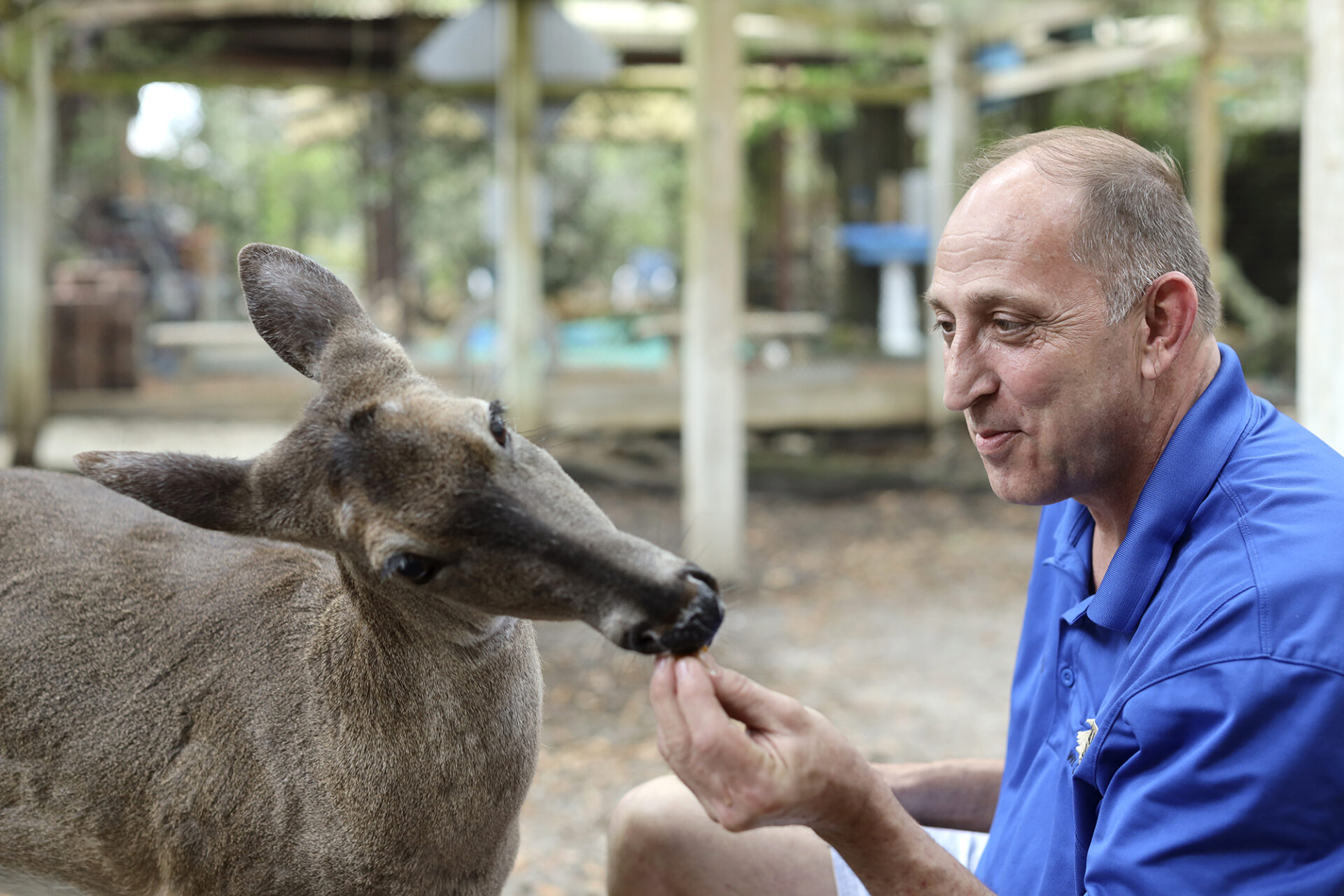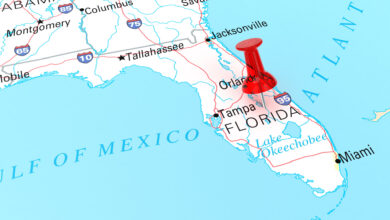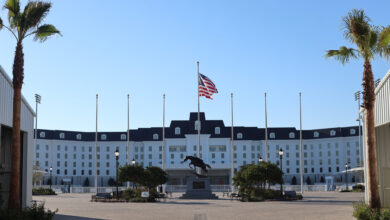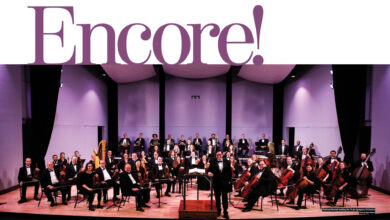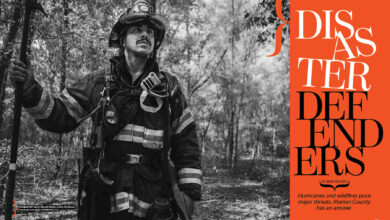Ocala Wildlife Sanctuary dedicated to rehabilitating injured animals
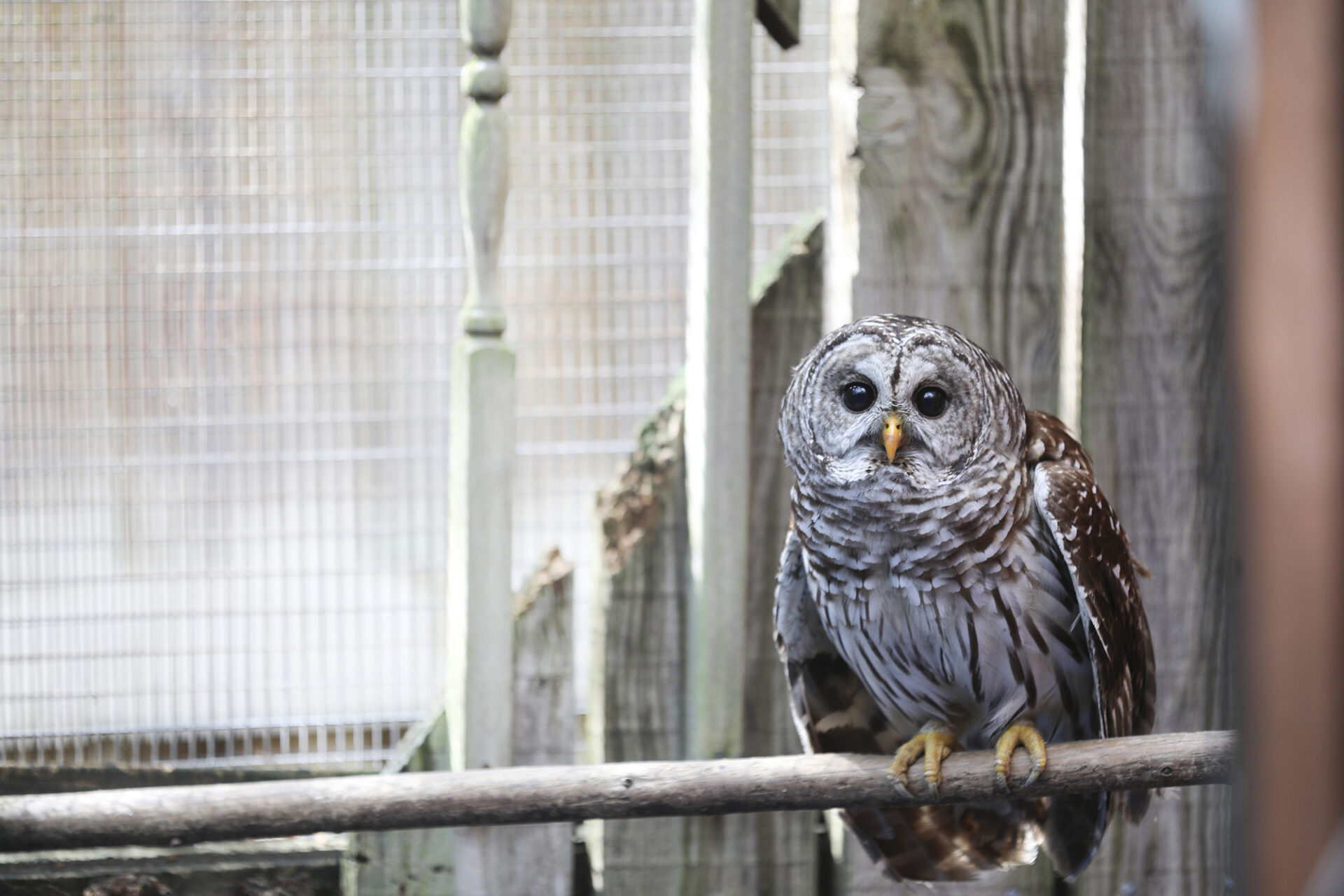 When Keith Belisle takes in an injured animal, the kinship between the two is deep and immediate. This bond grows out of Belisle’s own similar near-tragic experience, from which he draws upon to nurture his own empathy.
When Keith Belisle takes in an injured animal, the kinship between the two is deep and immediate. This bond grows out of Belisle’s own similar near-tragic experience, from which he draws upon to nurture his own empathy.
The founder and operator of Ocala Wildlife Sanctuary (OWLS) with Ken Lane, Belisle was himself involved in an incident that left him debilitated and in need of extraordinary care and subsequent rehabilitation. When an orphaned deer or an owl sporting a clipped wing arrives at the sanctuary, Belisle knows a bit about what they’re going through, and he makes it his mission to make possible a long and happy life that can be a future source of inspiration for those who may come into contact with the animal.
At a young age, Belisle was involved in an automobile accident that left him with permanent nerve damage in his spine. Almost 10 years ago, a large tumor was discovered in his abdomen and doctors told him his chances of survival were slim. As such, Belisle does not take too kindly to dire news, instead acting on the belief that any negative situation can be turned into a positive. This attitude has worked to turn around the lives of many wild animals that would otherwise have been left for dead or not worthy of the effort to rehabilitate.
Consider Hobie, a great horned owl that came to Belisle and Lane 28 years ago as a result of a cruel trapper, who used a machete to chop off a wing. “A lot of kids and adults that have disabilities can relate to him,” Belisle said. Although Hobie hasn’t been able to leave the sanctuary, he has lived a long life that has been a symbol of hope for those facing a similar predicament.
“It’s my passion,” Belisle says of his life’s work in rehabilitating injured or abandoned animals. “I was born and raised on this property, and all my life I’ve had involvement with wildlife.”
Currently at OWLS there are around 65 animals in Belisle’s care, including 15 owls, five macaws, a pair of gopher tortoises and a number of ducks, chickens and parrots. Normally, the sanctuary houses around 100 animals, but the recent pandemic has cut into the number of animals being brought in and how many they can accept.
“I decided we were going to give him [the owl] a chance in life, no matter what – I would want to be given that chance.”
—KEITH BELISLE
Typically, OWLS will get a call from the Florida Fish and Wildlife Commission involving a case that will bring in an injured animal; other times, random people have been known to bring injured wildlife to the sanctuary. The overwhelming number of cases are the result of human interaction, either intentional or not — in the case of Hobie, a cruel human inflicted the damage. The resident orphaned deer, Buttercup, came to OWLS as a result of its mother being killed by a car just hours after giving birth.
“There are a lot of automobile hits,” Belisle said. “We do get calls of birds being shot because they’re going after hens or whatever the case may be.”
What makes OWLS so special is that it is one of very few places of its kind. Licensing for such a facility that houses predatory or migratory birds is next to impossible – federal and state level issues are mandatory – and the pandemic has taken its toll on many such places.
“It’s forced a lot of rehabbers completely out,” Belisle says. “Ones I’ve known for 30-40 years have just shut their doors and unfortunately had to euthanize all their animals.”
One issue noted by Belisle is people’s misguided instincts when coming across a young bird. This time of year, many baby birds hatch and people are likely to come across them and not know what to do.
“People panic when they see baby birds on the ground,” Belisle said. “The motherly instinct of a person normally is to pick it up and take it in, feed and water it, which is the worst thing to do for a baby bird. You should actually try to place it back in the nest with the parents, and that includes owls or any bird of prey.”
Belisle’s passion includes building cages specifically designed for the rehabilitation needs of the particular animals. He recalls a particular owl he received many years ago that was completely paralyzed with the exception of being able to move its eyelids. Instead of euthanizing the creature, he worked with the owl as a personal therapist of sorts.
“I decided we were going to give him a chance in life, no matter what – I would want to be given that chance,” Belisle said. “I made this tiny jump-up for him and I exercised his legs and wings for him every day. He was with us for 15 years and he could fly and he could walk.
“He was the one who taught me you never give up in life, no matter how bad the circumstances are.”
OWLS is a nonprofit organization that relies completely on volunteers and public donations – no state or federal funding is involved. For Belisle, the reward comes in the successful rehabilitation of an animal and watching it take off back into the wild.
“It’s an amazing job to have, and to be able to work with them and release them back into the wild – it’s just a beautiful feeling.
“Normally, I’ll feel their heart beat up against mine just before I toss them off. That’s my reward and my pay, and what a fabulous experience.”
OWLS is located at 2020 SW 5th Avenue in Ocala and can be reached at 352-895-0451 for information on volunteering, donating or visiting the sanctuary. To view videos of the animals, one can visit online at givingahoot.org.


